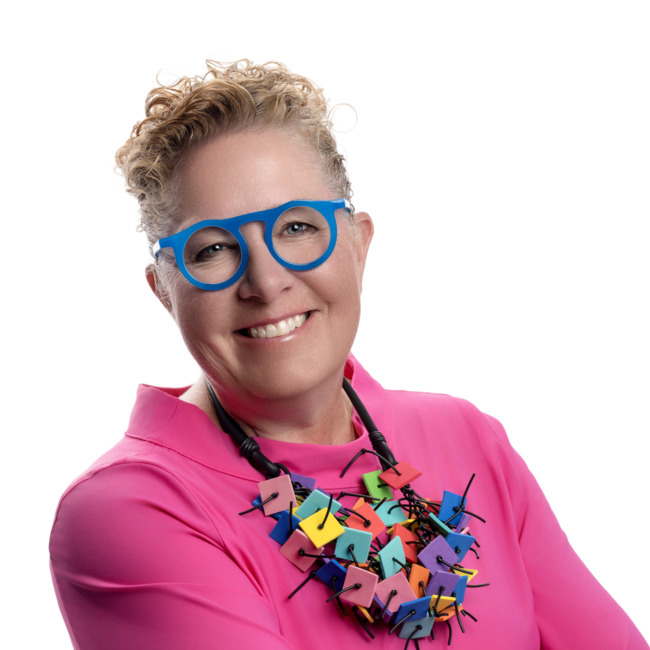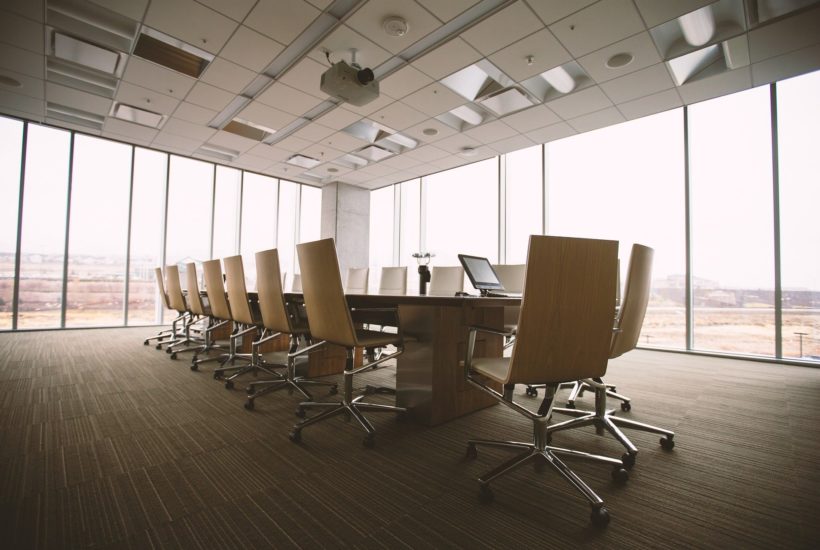Why learning how to handle failure is the key to career success

What does the future of work look like for businesses in a world where machine learning and artificial intelligence are replacing people with routine and repetitive tasks? The future looks pretty good for people who focus on their human skills of creativity and empathy, their ability to learn through failure, and being able to unlearn all the old ways of doing things so they can learn anew.
![]()
Published
4 days agoon
By
Kyle Crocco
Will the future of work be awful in a world of artificial intelligence and robots? When we look at the longer arc of world trends they are pretty good. In the last few decades, globally, we have pulled more people out of extreme poverty, dramatically increased literacy rates, and for the short period of time we have had the internet, connected more than half the globe. In short, innovations are helping us to live longer, prosper, and be better educated than the generations that came before us. However, we face new challenges that previous generations never faced in how to keep relevant in a workplace that is constantly changing. It’s not enough anymore to earn a degree or learn a trade when our knowledge might be irrelevant by graduation.
So how do you navigate a career in a world of constant change? To find out how we could successfully ride the waves of digital disruption, I talked with future of work expert Heather McGowan. Heather didn’t start as a thought leader in work. She began her career in Industrial Design and as the world changed, so did her expertise. Her experience in multiple fields (she also earned a business degree) allowed her to help universities redesign their programs for the changing demands of the workplace. In some ways, she has been thinking about the future of work for many years as she prepared undergrads for the new work paradigm of constant change.
So what do we need to do to stay on top? We need to focus on human skills, flearning, and unlearning.
Focus on human skills
To stay relevant, we need to focus on human skills. McGowan demonstrates in her new book The Adaptation Advantage, soft skills like creativity, communication, and empathy will be more important than learning hard skills like GSuite or coding. While our digital friends of artificial intelligence, machine learning, and robots may soon be able to replace any repetitive or routine skills we can do, they aren’t all that good at being creative, understanding our needs, or communicating with us. Current technologies can make established processes more efficient but those tech tools cannot dream, imagine, or make meaning. We have only digitized about 20% of our economy, so as we progress in this process, soft skills, which are hard if not impossible to automate, becoming increasingly important.
So today we need to focus on being creative to come up with novel questions and undertake complex problems. We need to be able to communicate well in order to collaborate and work together as teams. Finally, empathy is always in demand as we collaborate with others and work in the creative and service economies.
SEE ALSO Texan city to open residential community for homeless individuals
Adopt a flearning mindset

We need to adapt a flearning mindset. Businesses and universities have created systems of learning and work cultures that have—as Theoretical Neuroscientist and Founder of Socos Labs Dr. Vivienne Ming says—“designed failure right out of the system.” Instead of learning, McGowan suggests we need to embrace “Flearning.” [Note the term “flearning” (failing + learning) was coined after the 2012 FailCon (Failure Conference), in a brainstorming session led by Mick Liubinskas, co-founder of business incubator Pollenizer]. In our obsession to prove learning, we have trained people to find the single right answer to known questions rather than probe new problems or find new insights and questions all together—these are tasks that are not as easily automated. Those who can find and frame novel challenges in order to create new value, essentially those adept at innovation, will never have to look for work.
However, failure is an integral part of innovation and an important part of learning. We learn best by making mistakes and improving on our attempts. We need to strive as institutions and individuals to feel it’s okay to try something new and not have it work, as long as you learn from the experience. Leading teams in this new normal requires executives who can establish psychological safety for their teams by demonstrating vulnerability such that their team members feel safe taking risks, failing, being wrong, and asking for help. This approach is new for many and may be uncomfortable. Our tendency as leaders to seek to establish ourselves as experts is also a challenge. There is an academic term known as “earned dogmatism effect” where—once earned or deemed an expert—we discard new information in favor of holding onto our perceived expertise. In a world of accelerated change, this is a real liability.
Learn to unlearn
Finally, we all need to learn how to unlearn. According to McGowan, unlearning is the process of letting go of old methods and the means of doing things so you can adopt new processes and methods. For example, transitioning from analog processes to digital processes requires unlearning; or shifting from one business model to another requires unlearning. We all have to be willing to let go of the ways “things always have been done” to adapt to the way things are being accomplished now.
Even more significant, we may have to let go of who we think we are. Our obsession over the last few decades of defining ourselves with a fixed occupational identity, evidenced by our colloquial greeting “What do you do?” can become a trap, preventing learning and adaptation in a world of accelerated change. In this world, our career arcs are longer by nature of expansive human longevity. Since the change rate is faster, we will experience more jobs across more industries making our ability to learn and adapt our single greatest competitive advantage.
SEE ALSO Fighting time famine: Scheduling the unscheduled
Use learning as the new pension
If not, we’ll not only fall behind in our work and industries, we may fall into an identity crisis. Studies by IBM (NYSE: IBM) found in 2014 it took 4 days to close the skills gap; in 2018, that gap became 36 days. Looking across all Westerm European countries, that gap equals 14 to 16% of your time or a minimum of an hour a day to catch up with 2018. The World Economic Forum predicts in less than 3 years (by 2022) we may need 101 days a year or 45% of our time learning in order to keep pace with changes in work. When you consider what we put away for retirement (e.g., 14-16% of the money we make every day according to research by AARP and Fidelity,) Heather believes that “Learning Is the New Pension.”
In the end, the new work world may seem daunting but we have the skills to succeed. Thinking about humans today, we live in environments once considered uninhabitable by our ancestors. We forge technology tools that extend our human potential. Heather calls this approach the adaptation advantage. Schools, businesses, and individuals who are willing to adapt to a new learning mindset will thrive. This new mindset is one in which we continuously learn, focus on human skills, embrace failure in learning, and unlearn the old ways to let in the new.
